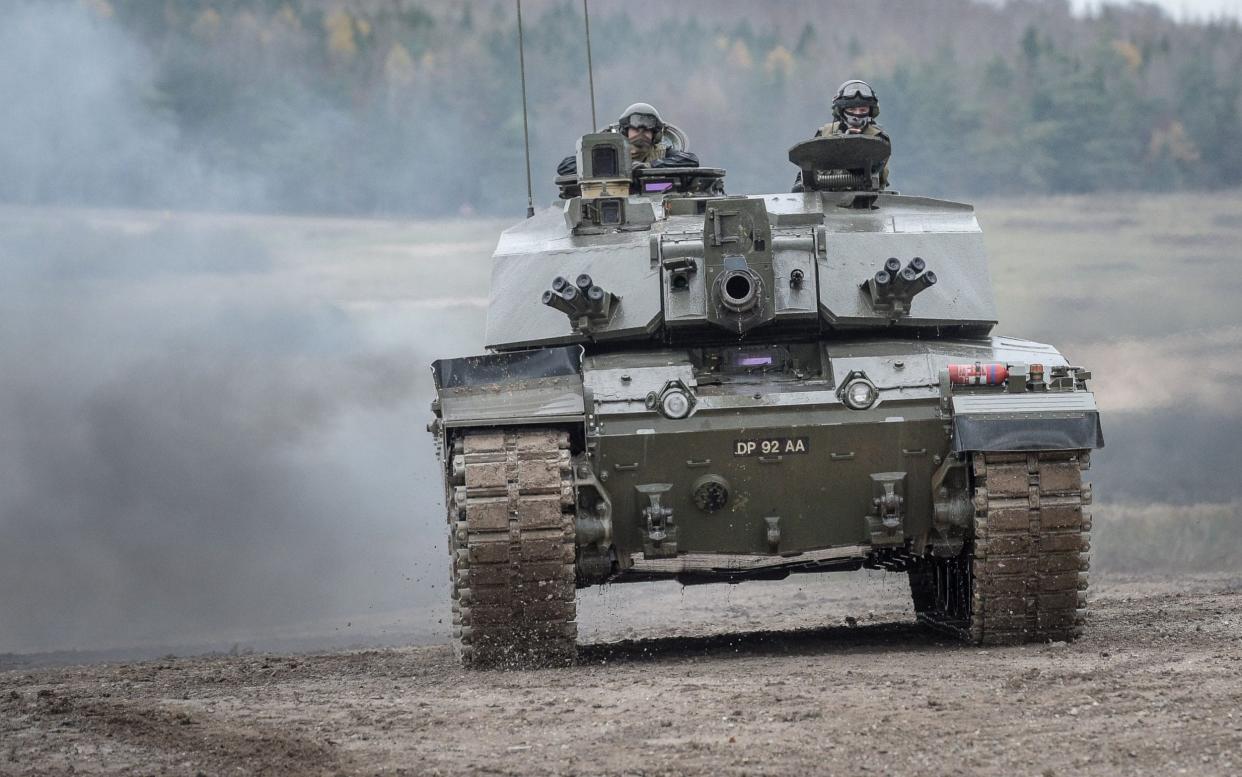British tanks 'no match' for the Russians, warns Defence Committee

Russia will outgun Britain in tank fights because “bureaucratic procrastination” has left its fleet facing “mass obsolescence”, the Defence Committee has said.
Any "artillery duel" between a modern British and Russian division is "likely to end one way - and not necessarily to the British Army's advantage", according to a scathing new report by the House of Commons body.
This is due to a history of "bureaucratic procrastination, military indecision, financial mismanagement and general ineptitude", which it said had marked attempts to re-equip the Army over the past two decades.
A series of botched procurement programmes meant the Army had been left with an armoured fighting vehicle (AFV) fleet facing "mass obsolescence", says the report entitled "Obsolescent and outgunned".
The committee said: "It is alarming that for at least the next several years, UK armoured forces may find themselves overmatched by their most challenging peer adversary.
"Were the British Army to have to fight a peer adversary - a euphemism for Russia - in eastern Europe in the next few years, whilst our soldiers would undoubtedly remain amongst the finest in the world, they would, disgracefully, be forced to go into battle in a combination of obsolescent or even obsolete armoured vehicles, most of them at least 30 years old or more, with poor mechanical reliability, very heavily outgunned by more modern missile and artillery systems and chronically lacking in adequate air defence."
Committee chairman Tobias Ellwood said the Ministry of Defence (MoD) has allowed the Army's armoured fighting vehicles capability "to atrophy at an astounding and alarming rate".
He added: "A mixture of bureaucratic procrastination, military indecision, financial mismanagement and general ineptitude has led to a severe and sustained erosion of our military capabilities.
"This will have a profound and potentially devastating impact on our ability to respond to threats from adversaries.
"Whilst the defence landscape is certainly shifting, traditional warfare remains a very real and frightening possibility, and one for which we must be fully prepared."
The criticism comes as Prime Minister Boris Johnson prepares to set out on Tuesday the results of the Government's integrated review of foreign, defence, security and development policy.
It is expected to mark a shift away from "industrial age" capabilities - like heavy armour - towards the battlefields of the future such as cyber and space.
However, the committee said that whatever the outcome of the review, the Army needs to regain its "credibility" as it currently lacks sufficient armoured capability to make an "effective contribution" to Nato deterrence.
Even under the MoD's current plans, it said the Army is four years away from being able to field a "warfighting division", which would still be "hopelessly under-equipped" and "denuded" of a third combat brigade.
There are still some vehicles dating back to the early 1960s, a time when the Morris 1100 was Britain's most popular car and Elvis Presley had a Christmas number one with Return To Sender.
The report also criticised the MoD for embarking on a series of "overly-ambitious" equipment projects which were too reliant on developing technologies, resulting in cancellations and delay.
In contrast, it highlighted investment by the Russian military in modern missile and rocket artillery systems, which in 2014 were able to obliterate a Ukrainian formation within "a matter of minutes".
It said the MoD needs to urgently address its shortfalls in artillery, air defence and anti-drone capabilities.
An MoD spokesman said: "We thank the Defence Committee for their report and acknowledge their recommendations as we look to improve the management of our large and complex equipment programmes.
"Aided by the substantial £24 billion settlement for Defence, the Integrated Review will provide resources to deliver an upgraded, digitised and networked armoured force to meet future threats."

